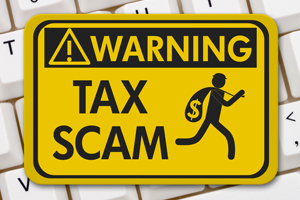Recognizing and avoiding tax scams
Tax season can be stressful but beware of scammers trying to take advantage. Here’s how to identify and avoid them:
Red flags:
- Urgent threats: The IRS typically initiates contact via mail, not by phone, email, or text demanding immediate payment. Threats of arrest or deportation are huge red flags.
- Unfamiliar taxes: Scammers may invent taxes like a “Federal Student Tax”. Legitimate tax information can be found on the IRS website.
- Suspicious payment methods: The IRS won’t ask for payment via gift cards, prepaid cards, or wire transfers. They accept checks, electronic payments, or credit cards (with a fee).
- Phishing attempts: Emails or texts claiming to be from the IRS requesting personal information are scams. The IRS won’t ask for sensitive details through these channels.
Stay safe:
- Don’t engage: If you suspect a scam, hang up the phone, don’t reply to emails, and don’t click on links.
- Verify directly: Contact the IRS at 1-800-829-1040 to confirm any communication claiming to be from them.
- Report scams: Report suspected tax scams to the IRS at [email protected].
By staying vigilant and recognizing red flags, you can protect yourself from tax scams and ensure a smooth tax season. Remember, the IRS is there to help, not threaten.

